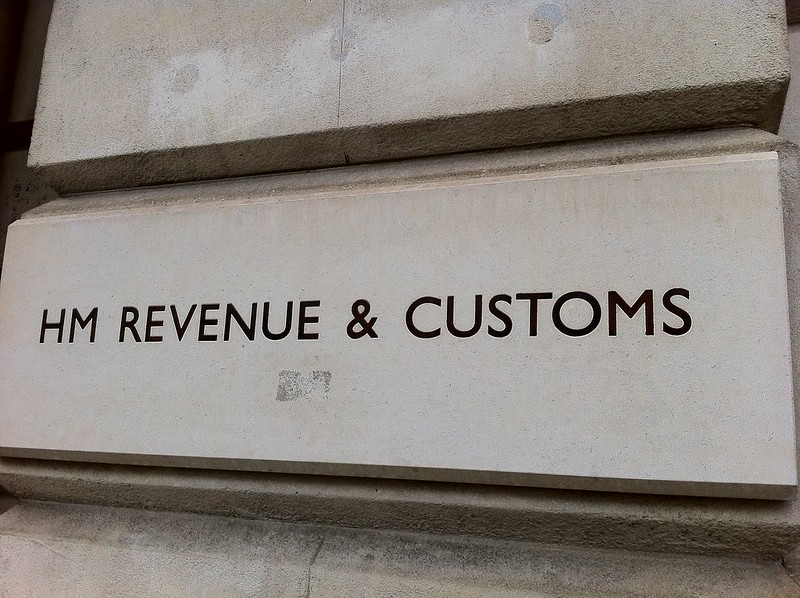Selling a house in the UK can be challenging. Various aspects, from finding the perfect buyer to many legal nuances in property implementation, can make you feel confused and concerned. One of the major points that needs to be clarified is whether sellers should report the implementation to HMRC and, if so, how. This guide is dedicated to providing you with full information on the topic, describing possible queries, and helping you sell the house successfully.
Understanding HMRC’s Role in Property Transactions

To understand the necessity of informing HMRC when selling a property, it is essential to comprehend HMRC’s involvement in property transactions. As mentioned before, HMRC administers tax revenue, including property-related transcations. Sellers might be eligible to pay taxes after a sale, and HMRC enforces tax legislation and payment procedures. The main forms of property sales tax in the UK are Capital Gains tax and Stamp Duty Land Tax. Therefore, the need to notify HMRC about the sale of a house mostly depends on the seller’s conditions and whether these taxes are applicable to the transaction.
Do you need to inform HMRC when selling your house?
Several factors, such as residency status, property nature, and possible tax liabilities, influence the necessity to keep HMRC apprised of your property sale. Consider these factors:
Pay Capital Gains Tax (CGT):
Taxation Gains are payable on profits from selling a house in the UK. Vendors should calculate their Capital Gains Tax liability to ensure that notifying HMRC is indispensable. Key considerations comprise:
- Main Residence Relief: If the property sold is your primary residence, you qualify for relief, exempting you from CGT accountability. In such instances, alerting HMRC may not be required, provided eligibility standards are met.
- Non-UK Residents Vendors: Non-UK inhabitants selling a house in the UK will have CGT obligations, necessitating HMRC notification. Professional tax recommendations are advisable for conformity.
- Additional Properties: Individuals who have multiple properties and are selling a property that’s not their primary residence will need to pay CGT. Hence, alerting HMRC and computing CGT liability based on profits is necessary.
Stamp Responsibility Land Taxation (SDLT):
Generally, SDLT is the buyer’s responsibility instead of the seller. However, if the seller makes any arrangements that could potentially impact the payable SDLT, the buyer must be informed completely about them. Additionally, it is advisable to keep HMRC informed about the transaction to eliminate any possible legal complications.
Other Taxation Considerations:
Other taxation implications can arise besides CGT and SDLT. For example, landlords selling a rental property can owe Income Tax on rental income. Consulting a tax advisor is pivotal for comprehending precise taxation obligations.
How do you inform HMRC about selling your house?

If you realise that HM Revenue and Customs must be informed regarding the sale of your house, reporting transaction particulars and any tax obligations is essential. Here is a breakdown:
Self-Assessment Tax Return
If you owe CGT tax and have not already registered for a Self-Assessment tax return with HMRC, you must register for Self-assessment. You can do this online at HMRC’s official website.
Fill Compulsory Forms:
HM Revenue and Customs also require the proper documents on the property sale. The set of forms depends on the conditions. For instance, if the Capital Gains Tax is due, the “Capital Profits Tax on UK Real Estate” form must be filled out: SA 109.
SA Form 109, “Capital Gains Tax for UK Properties,” is a tax form for filling in information on the capital gains tax paid on selling property in the United Kingdom. It is used by profit-making businesses and commercial and residential property sellers.
This form requires the following:
- the sales price
- any allowed deductions or reliefs
- the tax owed to HM Revenue and Customs on the resulting capital gains
- a UK address
It is critical to complete the SA Form 109 with accurate and timely information; otherwise, users may face fines and penalties.
Settle Any Tax Liabilities Promptly:
If you are required to pay taxes as a result of property sales, you should submit the form and pay HMRC before a specific deadline; otherwise, you will have to pay a fine.
Safekeep Records Carefully:
Thorough documentation of the property sale is crucial. Note the selling price, any sale-related expenditures, and all relevant paperwork. These records will aid in accurately computing one’s tax obligation and may prove helpful in any future HMRC queries.
HMRC Compliance While Selling a House in the UK Made Easy With TaxCan Accountants
There are several tax complexities to consider when selling a property in the United Kingdom. The reasons for selling the property may determine whether you are required to inform HMRC and pay taxes. To guarantee that you do not break the law and prevent numerous potential mistakes, we recommend that you speak with a tax expert, such as TaxCan Accountants. We will advise you of all the tax ramifications of selling and purchasing a house, giving you confidence in your decisions.
Meanwhile, after you’ve made your decision, our consulting compliance experts will assist you with all HMRC notification needs. TaxCan Accountants will offer you all of the information you need when purchasing or selling a house. At the same time, tax laws and HMRC rules might change, so stay up to speed and contact our experts for a seamless property sale.
Contact TaxCan Accountants to ensure that your home sale is both pleasant and lawful!
FAQs:
Is there a specific time frame for notifying HMRC of my house sale?
You must notify HMRC promptly once the transaction concludes. Please do so within the allotted timeframe to avoid penalties and accumulating interest charges.
What if I sell my property at a loss? Must I still notify HMRC?
While selling at a loss may relieve you of the duty to pay Capital Gains Tax, it is best to keep HMRC informed nevertheless. This ensures adherence to tax requirements and eliminates any problems.
Are tax deductions or allowances applicable to property sales?
Depending on your personal circumstances, you may be eligible for certain tax deductions or allowances. Certain costs associated with the selling of a property, for example, may be deductible. Consult a tax specialist at TaxCan Accountants to learn about potential deductions and allowances that might lower your liability.
Check Out The Additional Links and Insightful video!!
GOV.UK – Report and Pay Your Capital Gains Tax: This official government page provides detailed guidance on how to report and pay Capital Gains Tax (CGT) if applicable, including what information you need to provide and how to submit it (GOV.UK) (GOV.UK).
GOV.UK – Tax When You Sell Property: This page explains the circumstances under which you might need to pay CGT when selling property, including residential and investment properties, and the reliefs available (GOV.UK).
Good Move – How to Tell HMRC About Selling Your Property: This article offers practical advice on the process of informing HMRC, the potential penalties for failing to do so, and strategies to reduce CGT liability (Good Move™).
Galley & Tindle – Sold Your Home: This source discusses the specifics of the 30-day reporting requirement post-sale, exceptions, and the potential need for professional advice to navigate tax liabilities effectively (Galley & Tindle).




